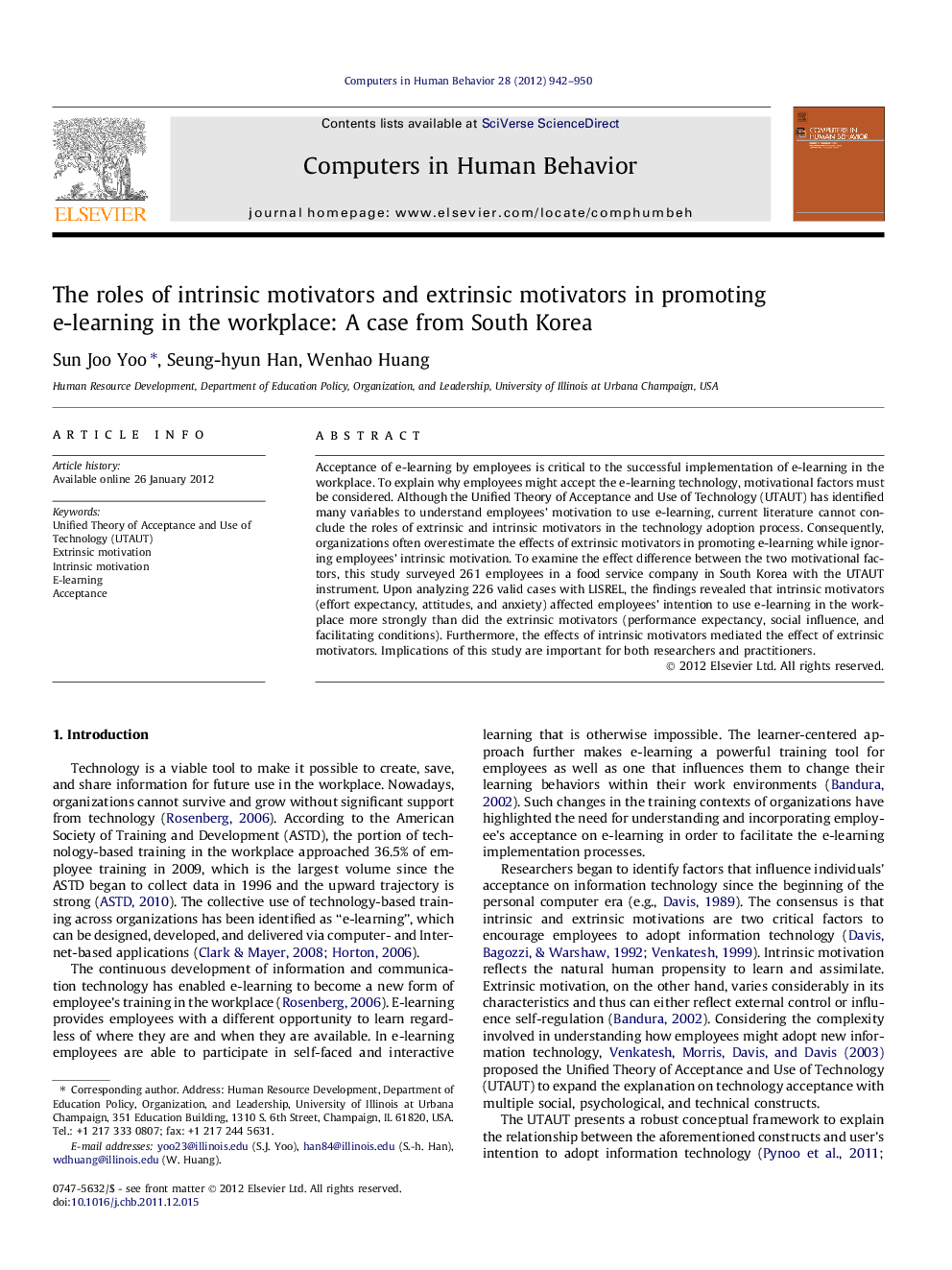| Article ID | Journal | Published Year | Pages | File Type |
|---|---|---|---|---|
| 351350 | Computers in Human Behavior | 2012 | 9 Pages |
Acceptance of e-learning by employees is critical to the successful implementation of e-learning in the workplace. To explain why employees might accept the e-learning technology, motivational factors must be considered. Although the Unified Theory of Acceptance and Use of Technology (UTAUT) has identified many variables to understand employees’ motivation to use e-learning, current literature cannot conclude the roles of extrinsic and intrinsic motivators in the technology adoption process. Consequently, organizations often overestimate the effects of extrinsic motivators in promoting e-learning while ignoring employees’ intrinsic motivation. To examine the effect difference between the two motivational factors, this study surveyed 261 employees in a food service company in South Korea with the UTAUT instrument. Upon analyzing 226 valid cases with LISREL, the findings revealed that intrinsic motivators (effort expectancy, attitudes, and anxiety) affected employees’ intention to use e-learning in the workplace more strongly than did the extrinsic motivators (performance expectancy, social influence, and facilitating conditions). Furthermore, the effects of intrinsic motivators mediated the effect of extrinsic motivators. Implications of this study are important for both researchers and practitioners.
► Intrinsic motivation mediates the relationship between extrinsic motivation and behavioral intention. ► Extrinsic motivation has no direct effect on behavioral intention. ► Intrinsic motivation directly impacts behavioral intention.
